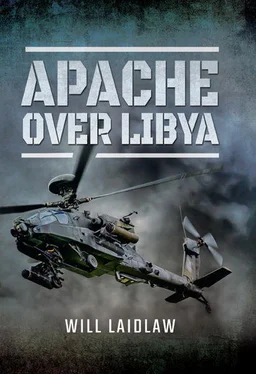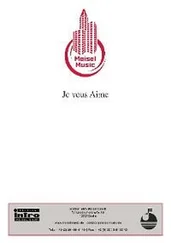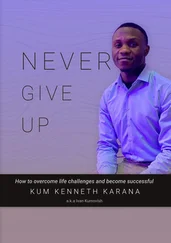When December came and HMS Ocean neared Plymouth Sound, I flew out to be part of her homecoming, spending the day on board when she came into port. Her crew lined the decks in their best uniform, tugboats blasted water, aircraft flew past and the band of the Royal Marines played loud. It was an emotional return, and the prize for the best shore-side placard went to the brave girl who had written ‘Dad I’m Pregnant!’ on a four-square-metre declaration.
The task was done. Five attack helicopters had proved their worth at sea. Our engineers had kept them flying. Our soldiers had delivered a deck tempo that meant our pilots kept doing what was asked of them. Ocean had kept us going. And we had succeeded. We had hit every target allocated to us. And we had not been hit ourselves, despite the unprecedented incoming fire and sophistication of the weapon systems used against us.
I have often been asked about people – pro-Gaddafi soldiers – ‘How many were killed on those missions?’ Somehow we have become interested in a body count, that most banal statistic of war. A clean and easy answer is: those who shot at us died. Of course this is not the whole answer. There were many pro-Gaddafi soldiers actively threatening the civilian population. They were on our targets, doing their best to keep Libya as it had been for 41 years. And we stopped them with Hellfire and rockets and 30mm. We killed them as we destroyed their tanks and guns and hiding places. And the ones who didn’t die told their friends about it and steadily stopped going to work. Cognitive effect must be demonstrably persuasive. There will never be a body count. I think I know the number, but I’ll never tell.
Then there were all the constraints of the targeting process and launch criteria; the layering of jets and drones that make responsible people feel better about our risk; the complexity of the Apache and the technology of its weapons. Given all these factors, this was small, agile, adaptable and comparatively inexpensive contribution to a huge air campaign in support of the tens of thousands of Libyans taking back their freedom. We joined the war when it was at stalemate, with civilians being slain daily and having nowhere to hide. The clear delineation of friend and foe made our missions easy to direct, but also put us in harm’s way as soon as we got in sight of the coast. In assisting the FLF breakout and getting pro-Gad on the run we completed our task.
It had certainly been an unexpected adventure and one that carried with it the very real danger of coming unstuck. Those early weeks weaving among the triple-A and bracing for the impact of the SA-24 remain hard subjects for all of us to discuss beyond our small group. I feel the dryness in my mouth, the tension in my voice and the grinding of my teeth when the memory is provoked. The view out of the right-hand window of a missile streaking upwards while the American lady in the wing tells you it’s happening and flares are pumping out is ever vivid, has not faded. And the memory of the same missile being taken by the flares and then exploding in a final attempt to complete its task remains bright too.
In those moments the fear was huge. Our vulnerability, the fragility of life measured in seconds and centimetres, the instinct and desperation to survive – all these were acute. We all feared, but somehow death did not choose us. Perishing under the sea or being shot to pieces over the land were our clearest fears. In the moments of combat we all had that clarity and so we fought to kill the man and the weapon that was attacking us. A man who fires a shoulder-launched missile at a helicopter is a trained operator, a skilled soldier. If he misses he will adjust his aim and try again or reassess the shot and do better next time. We knew that. He had to die.
Just as I was afraid for my own life in those brightly lit, chaotic battles, I was seized by fear when I sat in the Operations Room in HMS Ocean when not the lead for a mission. There I could only follow the battle as far as the radios would reach and then read the JCHAT to catch a glimpse of information as the patrol commander relayed his actions to Matrix, and Matrix JCHATted it to everyone else.
The sound of two Apaches arriving out of the black, tracked by the ship’s radar and night sights and landing after a mission, would bring a palpable sense of relief in the ship. With both on board and the SKASaC safely tied down too, the Officer of the Watch would bring the ship to port and head north to safer waters. Each time I was thankful we were all on board. Each mission reminded me that command was an unceasing responsibility. That whatever happened ‘out there’ was for me to own. The commander can never delegate that responsibility.
The CO and I wrote citations on each of the aircrew and on some of the engineers and ground crew too. In the end there were a number of commendations of various sorts, a solitary Distinguished Flying Cross and one Mention in Despatches. The CO and I wished for more, but sadly they didn’t catch the selector’s eye, or if they did, someone filtered them out. The citations are never disclosed and the narrative is kept locked away. This secrecy is hard to explain, and it is sad to think that those people – aircrew, ground crew and engineers we had written on – will never know how much we valued their service. We’re not in wars to win medals, and we don’t swallow down our fear and go out again to face the incoming just to be seen to be brave. Stepping out into the unknown on the first night, and then into the very real and hostile known every night after that, was worth a Distinguished Flying Cross for every one of those pilots on any one of their missions. Blades turning just feet from the waves to escape the hostility, a crew raging through the incoming to protect another, no one shied away. They flew against the most sophisticated threat British Army pilots have ever faced. And each night when they were fired at, be it with an AK, a PKM, triple-A, ZSU, SA-24 or radar-guided systems, they evaded, weaved and escaped the shots, spun about, faced the enemy, killed him and got on with the task at hand. Every time. They were heroes.
With the job done, we all moved on. Charlie and Jay both got back on the Afghanistan treadmill. They’ve been back there twice since Libya, now having spent over a year of their lives fighting the Taliban. During the 14 September 2012 Taliban assault on Camp Bastion, Jay was airborne and intervened to prevent insurgents rampaging across the main runway towards the camp. The two young upstarts blooded in Helmand and proven in Libya are now among the most experienced combat operators in the Attack Helicopter Force. All this, and still less than twenty-eight years old.
Doug got promoted. He finally made it to Afghanistan on operations in the last year of that campaign and continues to serve in the Army Air Corps, all ink, short hair and keeping-it-real attitude.
Big Shippers went back to the Royal Navy. He had been in the Apache world for almost eight years, been to Afghanistan four times and had to postpone his return to the Navy in the summer of 2011 to help us through Libya. The irony was that he found himself at sea with the Army, so he extended with us to lend his expertise to the new war. For four years he was the Army Air Corps’ foremost weapons expert, an A2-graded Standards instructor and the cornerstone of how we rewrote rules to make sense of the Apache in this new environment. And the Royal Navy wanted him back. They had a new helicopter to bring into service and Big Shippers needed to be at the front of that project too. We’ve met up, even flown sorties at sea. It’s always the same, on the quarterdeck or in the wardroom.
Reuben Sands and Nick Stevens left the Army, and commercial aviation is the richer for their presence. Bright, ambitious minds making their own luck. Little Shippers considered an offer to become a test pilot, but decided that life out of uniform was best, with marriage, a baby and a big, daunting house renovation. CJ also went. The Cumberland Show produce awards are now dominated by the newcomer who lectures in engineering and keeps a smallholding. She was also Young Woman Engineer of the Year in 2011. These are extraordinary people who made our success in war possible.
Читать дальше












